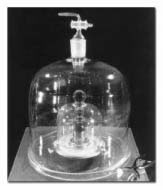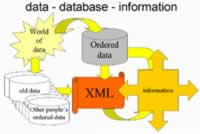
2002, Vol. 24
No. 6 (November)
No.
5 (September)
No. 4 (July)
No. 3 (May)
No. 2 (March)
No. 1 (January)
Chemistry International
2002
Chemistry International is the news magazine of IUPAC. News about IUPAC, its chemists, its publications, its recommendations, its conferences and the work of its commissions and committees is published bimonthly in Chemistry International.
Issues
Science and the Public: Learning for the Future

What hinders the public from appreciating science more? Is the way that science is taught today helping or making it harder for young people to evaluate science-based issues?
In January 2000, the Royal Society of Chemistry (RSC) set out to address these important questions. The Society put in place a two-year initiative–Science and the Public–to take a careful look at the schools and colleges.
The Bureau International des Poids et Mesures: Establishing Standards in the Physical Sciences
In a vault on the outskirts of Paris, a cylinder of platinum-iridium sits in a safe under three layers of glass. It is the kilogram, kept by the Bureau International des Poids et Mesures (BIPM), which is the international home of metrology. Metrology is the science of measurement, and it is of fundamental importance to us all. It is essential for trade, commerce, navigation, transport, communication, surveying, engineering, and construction. It is essential for medical diagnosis and treatment, health and safety, food and consumer protection, and for preserving the environment—e.g., measuring ozone in the atmosphere.
IOCD: 20 Years of Building Capacity in Chemistry in Developing Countries
The International Organization for Chemical Sciences in Development (IOCD) is celebrating the 20th anniversary of its founding by awarding the Pierre Crabbé-IOCD Prize, in honor of its founder, the late Pierre Crabbé. Over the years, Crabbé and his successors have managed to create and maintain specific and practical activities, provide vital technical services, and deliver promising results. Now rich with experience, this organization is planning for the road ahead.
Extensible Mark-up Language (XML) is a powerful alternative to conventional binary file storage and information exchange. As many scientific organizations and companies delivering scientific products have implemented or are looking at the use of XML, IUPAC decided to review and evaluate what could and should be its role in advancing the use of XML in chemistry. In January this year, the IUPAC Committee on Printed and Electronic Publications (CPEP) organized a two day Strategic Meeting to assess the Union's position and options. Hosted by the Unilever Cambridge Centre for Molecular Informatics in the University of Cambridge Department of Chemistry, delegates from all interested IUPAC Divisions gathered together with key players in the field.
Medicinal Chemistry in the New Millennium
The future of medicinal chemistry as both a pure and an applied science has been considered relative to trends that are already having a significant impact upon drug discovery and development. Such trends include pursuing therapeutic efficacy, addressing 3-D structure within database settings, assuring absorption, directing distribution, controlling metabolism, optimizing elimination, and avoiding toxicity. As the exploration of these topics proceeds by deploying combinatorial chemistry coupled to high-throughput screening, medicinal chemistry will play a key role in interpreting the underlying structureactivity relationships. This will cause the overall process of drug discovery and development to be knowledge generating. As fundamental knowledge accumulates across all of these areas, virtual approaches will eventually become firmly anchored to experimental and theoretical databases having validated clinical predictability.
PEDECIBA�Programa de DEsarrollo de CIencias BAsicas
A year ago, Uruguay became part of the IUPAC family, as the Chemistry Area of PEDECIBA became an Associate National Adhering Organization (ANAO). By becoming an ANAO, PEDECIBA provides a point of contact for the chemists in Uruguay and the global chemistry community. CI asked a Uruguayan member, Patrick Moyna, to review the origin of PEDECIBA and the significant role of chemistry in the organization..
News and
Notices - Organizations and People -
Standing Committees
Divisions -
Projects - Reports
- Publications - Symposia
- AMP - Links
Page last modified 18 December 2002.
Copyright © 1997-2002 International Union of Pure and Applied Chemistry.
Questions or comments about IUPAC, please
contact the Secretariat.
Questions regarding the website, please contact [email protected]

